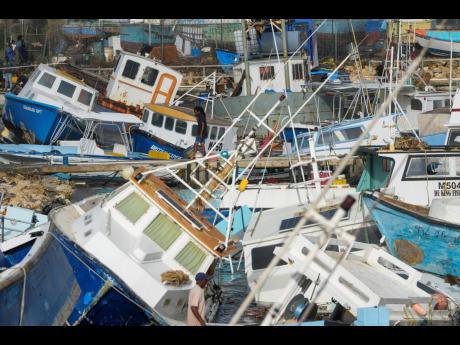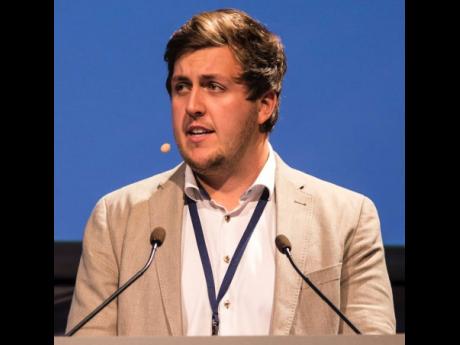James Ellsmoor | From Barbados to Baku: Supporting island solutions to climate change
With Hurricane Beryl hitting the Caribbean, Typhoon Gaemi making landfall in the Philippines, the wildfires in Canada, and the increasing global water insecurity, the climate crisis continues to highlight the need for concerted mitigation and adaptation action.
The devastation caused by Beryl, most notably on Carriacou and Union Island, has reignited the conversations around loss and damage. The international climate disaster support and relief fund world leaders agreed to set up at the United Nations’ climate summit last year in Dubai (COP28). Set to be operationalised at COP29 in Baku in November, the loss and damage (L&D) fund is just the first step towards fairer climate financing for climate-vulnerable communities.
CLIMATE FINANCE
In an open letter addressed to the United Kingdom’s Foreign Secretary, David Lammy, signed by the prime ministers of Antigua & Barbuda, Gaston Browne; Grenada, Dr Dickon Mitchell; and St Vincent & the Grenadines, Ralph Gonsalves, the level of damage the region is having to recover from year-on-year was put into context, “In 2004, Hurricane Ivan caused damage in Grenada worth a staggering 200 per cent of GDP,” it reads. “Dominica, which closely escaped Beryl’s clutches, is now one of the most heavily indebted countries in the world after Hurricane Maria (2017) wiped out 226 per cent of GDP.”
Grenada and Dominica are still financially recovering from those storms, the leaders point out, and Beryl has put Jamaica and St Vincent in a similar predicament. With COP29 looming, and the mechanisms behind the loss and damage fund set to be unveiled, it has become increasingly clear that there needs to be increased funding opportunities for vulnerable communities to build resilience and develop local solutions to the climate crisis.
While there are several questions that remain to be answered surrounding the mechanisms and management of L&D, as Cameron McBroom-Fitterrer details in an Island Innovation Policy Brief, the wording and designations within international policy can block pathways for financing, “Potential recipients include ‘all developing countries.’ Whether or not this is limited only to UN-designated LDCs is not immediately clear. If so, Barbados would not be eligible to receive funds. In fact, the only eligible Caribbean nation in this case would be Haiti.”
In a similar vein, international climate funding for overseas territories and subnational island jurisdictions with links to larger nations, like Sint Maarten (Netherlands), New Caledonia (France), or Anguilla (UK), may be restricted due to their links with a major developed economy. The complexities of climate finance were a key talking point at the 4th International Conference on Small Island Developing States (SIDS4) two months ago in Antigua and Barbuda, and the overhaul of international financing systems will almost certainly feature heavily in Baku later this year.
CAPACITY BUILDING
The destruction caused by Hurricane Beryl underscores the need for concerted climate action by the world’s leading economies as well as increased collaboration towards resilience building, adaptation, and mitigation projects in vulnerable communities. Beyond the SIDS conference, which happens once a decade, and the yearly UN COPs, where negotiations and policymaking is top of the agenda, there are few opportunities for large-scale knowledge-sharing events that involve civil society, youth, academia, and other key stakeholders. One of the events filling this gap is the Virtual Island Summit, a yearly event heading into its’ sixth iteration that brings together 10,000 attendees and over 160 speakers from around the world.
An open-access event with a weeklong agenda discussing the challenges and solutions being developed by island communities, the VIS has begun to serve as a primer for COP, with past addresses from the likes of Barbados Prime Minister Mia Mottley, Marshall Islands President David Kabua, and Chair of the Alliance of Small Island States (Fatumanava-o-Upolu III Pa’olelei Luteru. Set between September 9-13, early speaker announcements include high-level government representatives from the Canary Islands, Madagascar, Tuvalu, and Sint Eustatius, with more to be announced in the lead up to the event.
The VIS provides an important opportunity for knowledge exchange towards resilience-building projects, while amplifying the voices of communities on the frontlines of climate change that are often overlooked at major international events like COP. International negotiations are slow, industry events tailored towards catalysing workable sustainable solutions can help fill the gaps in between. We cannot afford to wait for COP and international law to discuss the ongoing damage caused by climate change – civil society is actively developing solutions that can be implemented, the best way forward is through knowledge-sharing.
- James Ellsmoor is an award-winning serial entrepreneur and writer. He is co-founder and director of Solar Head of State, and CEO at Island Innovation. Recognised on the Forbes 30 Under 30 list for his work on sustainable energy. James is passionate about climate change advocacy and environmental policy. Send feedback to james@islandinnovation.co and columns@gleanerjm.com


